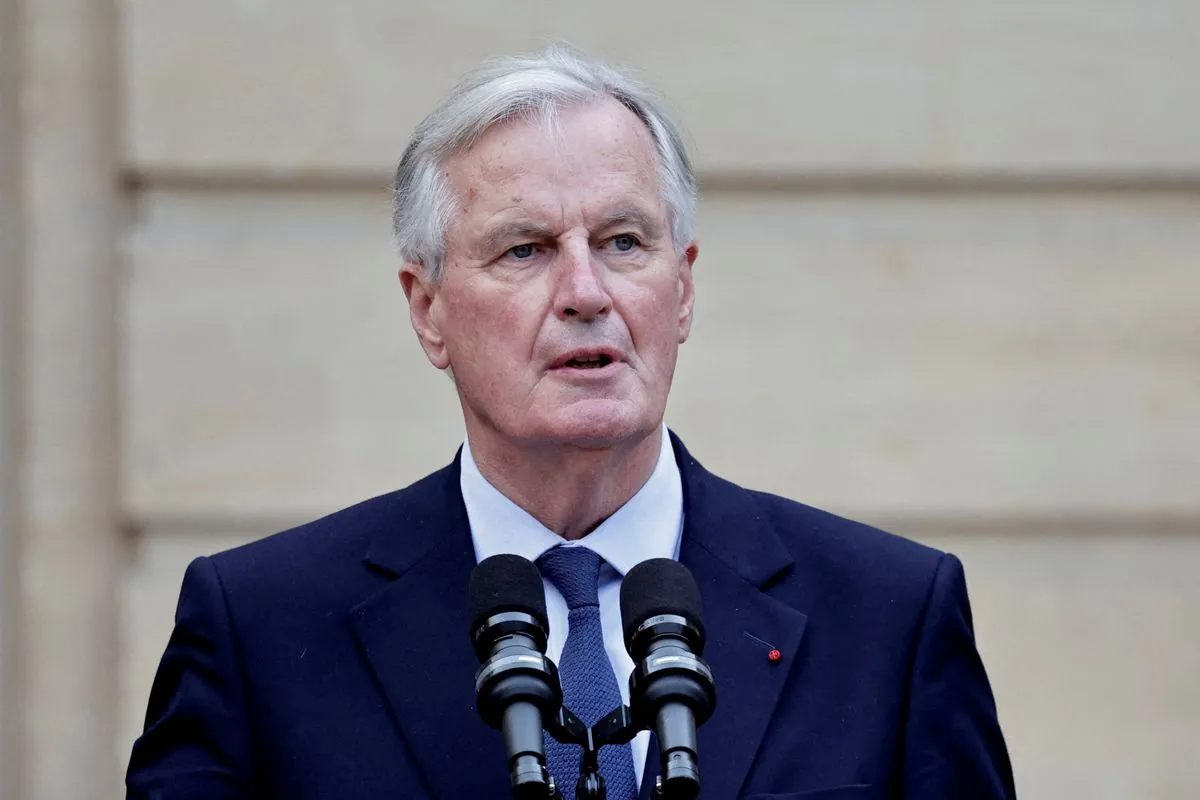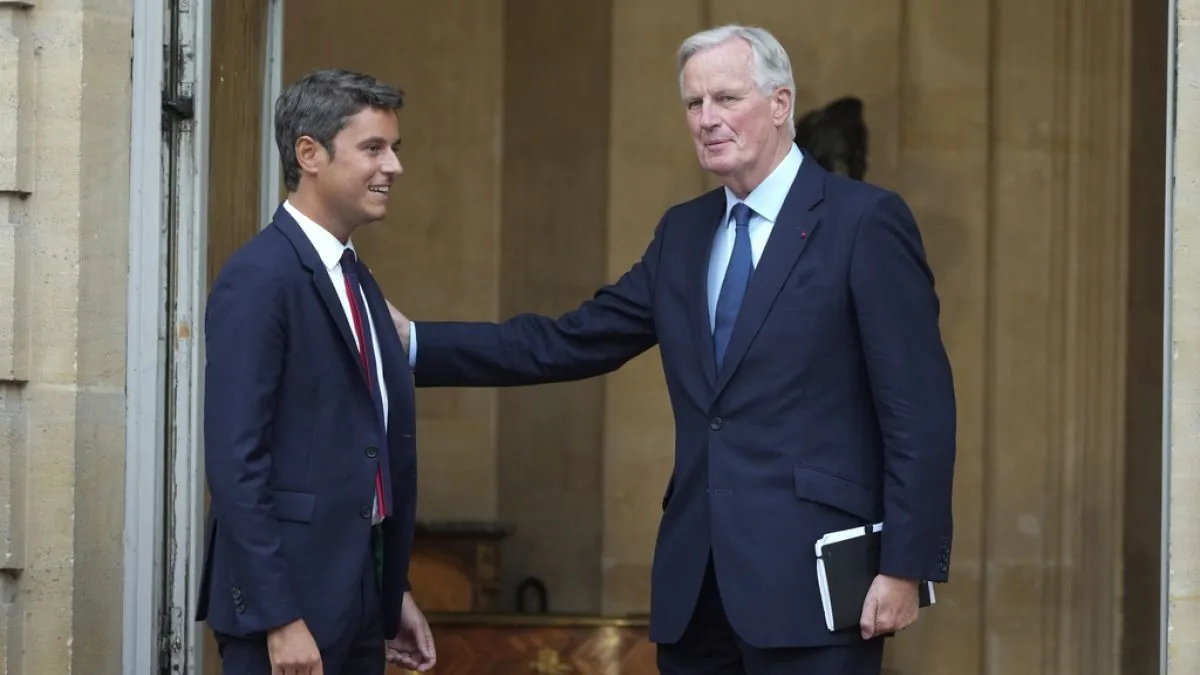New French Government Convenes: Barnier Sets Budget and Migration as Key Priorities
France's newly formed conservative-centrist government met for the first time, with Prime Minister Michel Barnier focusing on budget and migration issues. The administration faces challenges amid a divided parliament and EU fiscal concerns.

France's newly formed government, comprising conservatives and centrists, convened for its inaugural meeting on September 23, 2024. Prime Minister Michel Barnier set the tone by emphasizing budget management and migration control as the administration's top priorities.
The gathering took place more than two months after parliamentary elections resulted in a hung parliament, reflecting the deepening political divisions in France. This political landscape has emerged as the nation grapples with mounting financial and diplomatic challenges.
Barnier, a 73-year-old political veteran renowned for his role as the EU's Brexit negotiator, addressed these issues in his first televised interview since his appointment. He acknowledged that a key challenge for his government would be the 2025 budget bill, scheduled for parliamentary debate next month.
"I'm not going to further increase the tax burden on all French people."
However, Barnier suggested that "the wealthiest contribute to this national effort." This approach comes in response to France being placed under a formal procedure by the European Union's executive arm for excessive debt earlier this year.

The Prime Minister also vowed to "control and limit immigration," stating that the number of migrants coming to France "has become unbearable." He referenced measures taken by neighboring countries, such as Germany's recent implementation of temporary controls at all land borders.
Barnier's appointment and the formation of this government come at a crucial time for France. The country, with a population of approximately 67 million, faces significant economic challenges as the second-largest economy in the European Union. The EU's Stability and Growth Pact requires member states to maintain a budget deficit below 3% of GDP, a target that France has struggled to meet.
The new administration's first major political test is set for October 1, 2024, when Barnier is scheduled to deliver his general policy speech to the National Assembly. This 577-seat lower house of parliament plays a crucial role in French politics, reflecting the country's semi-presidential system that combines elements of parliamentary and presidential governance.
Barnier's extensive experience, including his tenure as European Commissioner for Internal Market and Services from 2010 to 2014, is seen as an asset in navigating the complex political landscape. He emphasized his ability to forge compromises, drawing parallels to his success in uniting the 27 EU countries during Brexit negotiations.
Meanwhile, President Emmanuel Macron, who secured his second term in 2022, is preparing for international engagements. He is set to head to New York on September 24 for the UN General Assembly, followed by a two-day visit to Canada. This division of responsibilities reflects the French political system, where the President holds a dominant role in defense and foreign policy, while the Prime Minister leads the government and focuses more on domestic issues.
As France navigates these challenges, it does so as a key player on the global stage. The country is a founding member of both the European Union and the United Nations, holding a permanent seat on the UN Security Council. Its long-standing bilateral relationships, such as the one with Canada dating back to the 16th century, continue to shape its international outlook.
The coming months will be crucial for Barnier's government as it seeks to address France's economic challenges while managing a divided parliament. The success of this conservative-centrist coalition in implementing its agenda will have significant implications for France's domestic stability and its role within the European Union.


































